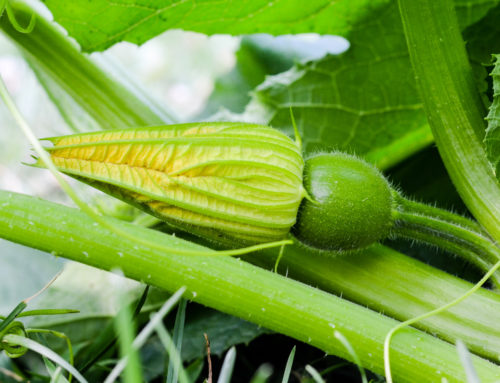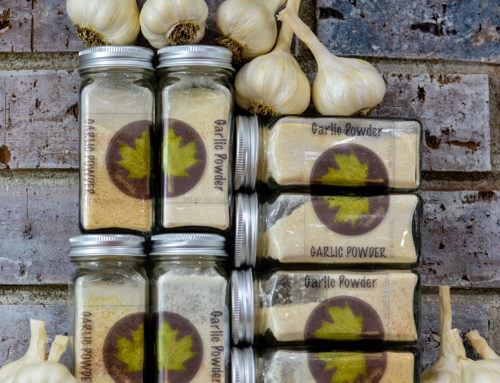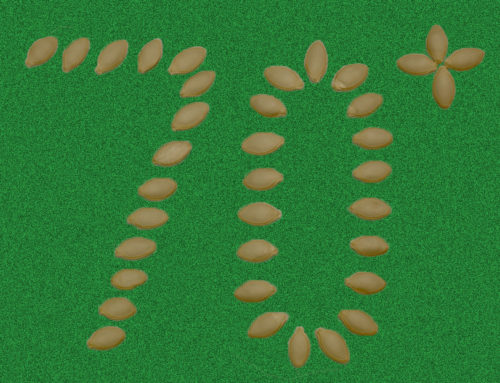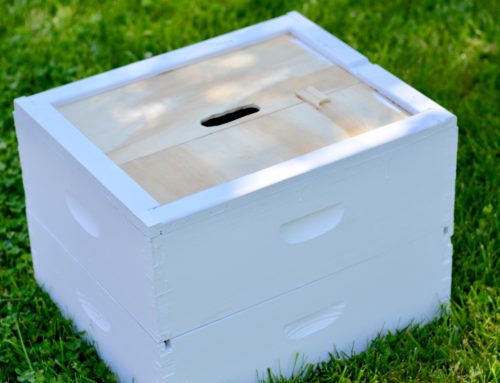Why should you compost? I think there are two main reasons why people choose to compost, it is great for the environment and it is arguably the most beneficial garden soil amendment you can find. Many people compost simply to reduce the amount of garbage they send to landfills. I personally have been amazed at the amount of food scraps that fits in our small backyard composter. Foods such as watermelon produce enough scrap to fill an entire trash can it seems like. Our small backyard composter on the other hand can digest endless watermelon rinds. Reducing your environmental footprint by composting can be as easy as dumping your coffee grounds out your kitchen window in the morning rather than throwing them away. Believe it or not fresh coffee grounds are great for composting, they decompose quickly and contain around 2% nitrogen, one of the most important plant nutrients. I collect coffee grounds at my office and calculated that I reduce the amount of landfill produced by 240 lbs a year, simply by composting coffee grounds.
There are many forms of composting everything from industrial waste digesters to backyard tumblers, even indoor composting such as worm composting. Compost is the fancy word for decomposed organic material (plants and animals). Dead plant material is “eaten” by many different kinds of soil bacteria and organisms, which eventually reduce it to a soil like material called humus.
The gardening benefits to composting are almost too many to count. Composting produces good soil structure and air circulation, helps soil absorb and retain moisture, helps resist soil erosion, provides nutrients and trace minerals to plants and animals (such as earthworms), helps neutralize soil toxins, and balances soil pH. None of these important tasks can be replaced by chemical fertilization.
Like I said before composting is not hard. There are a few guidelines that can make the difference between success and a smelly eyesore. I will outline the method that we use although depending on your needs and level enthusiasm there are certainly more ways than one to compost. For residential urban composters I recommend a YIMBY compost tumbler, or similar apparatus. After assembling the tumbler, which I’ll admit is somewhat of a chore, place the composter in an easily accessible part of your yard, out of sight if possible. Once the tumbler is in place simply start adding food scraps to one side. Only add raw fruit and vegetable scraps and egg shells. No Meat, No Dairy, No bread, No cooked food or seasonings. You can add yard wastes to the composter as well such as leaves or weeds. Do not add grass clippings. Grass clippings matt together when decomposing wet and create an anaerobic environment which smells and kills the good kind of bacteria for gardens. Whenever you add food to the composter give it a spin to mix up the ingredients. As time goes on the food will decompose and create more room in the tumbler for more scraps. If and when your composter starts to get soggy you need to add “brown” material. Composters work best when they have both “green” and “brown” material. Green material is food and yard scraps, items that have moisture in them. Brown material is dry material such as leaves, twigs, and sawdust (without pressure treatment or finishes). I use all of the leaves that fall on my yard in the autumn. I place the majority of the leaves on my garden to decompose but I always fill 1 garbage can full of leaves and set it next to my composter. Whenever my composter looks soggy, I add leaves. Having brown material also helps maintain the perfect carbon to nitrogen ratio. Once one side fills, simply start filling the other side and wait for the first side to fully decompose. The time it takes to compost a load varies with the time of year. During the winter the food in the composter will not decompose at all, during the summer however it will only take a couple weeks to fully decompose a load of compost. Heat is the key ingredient, the hotter it is the faster the food will decompose. More heat means more bacteria. My sure fire way of determining if the compost has finished is to smell it. If is smells like dirt, it has completed, if it still smells like rotting food you still have some time to wait.

Feed me!
Kitchen scraps recently placed in the YIMBY Compost Tumbler

I’m digesting! Kitchen scraps nearly finished digesting in the YIMBY Compost Tumbler.
A few other things to keep in mind: As you compost you will find plenty of insects in your tumbler, don’t worry, this is natural. Be careful not to add too much sawdust, wood has a high carbon to nitrogen ratio, decomposing the large amount of carbon will fix the nitrogen preventing it from being available to plants. If your composter smells, you either placed something wrong in it or it could be too wet. Usually adding a large amount of leaves can fix the problem. We have not had any trouble with animals and our composter usually doesn’t smell.
If you are interested in learning more about composting I would encourage you to read The Rodale Book of Composting. I have used this book for my own benefit as well as to help write this article.
This post may contain affiliate links, which means that at no additional cost to you we may make a small commission if you click on the link & make a purchase. Thank you for your support!




Leave A Comment